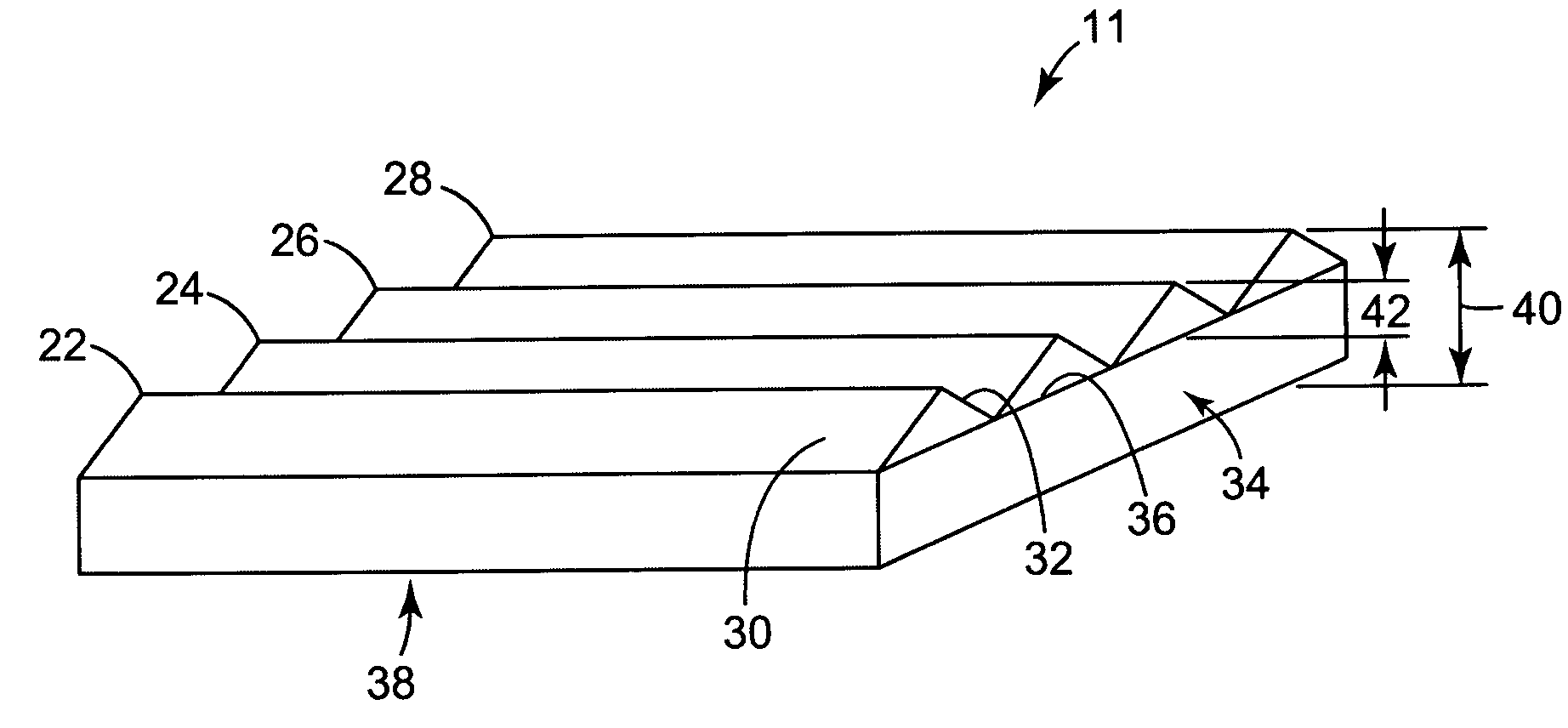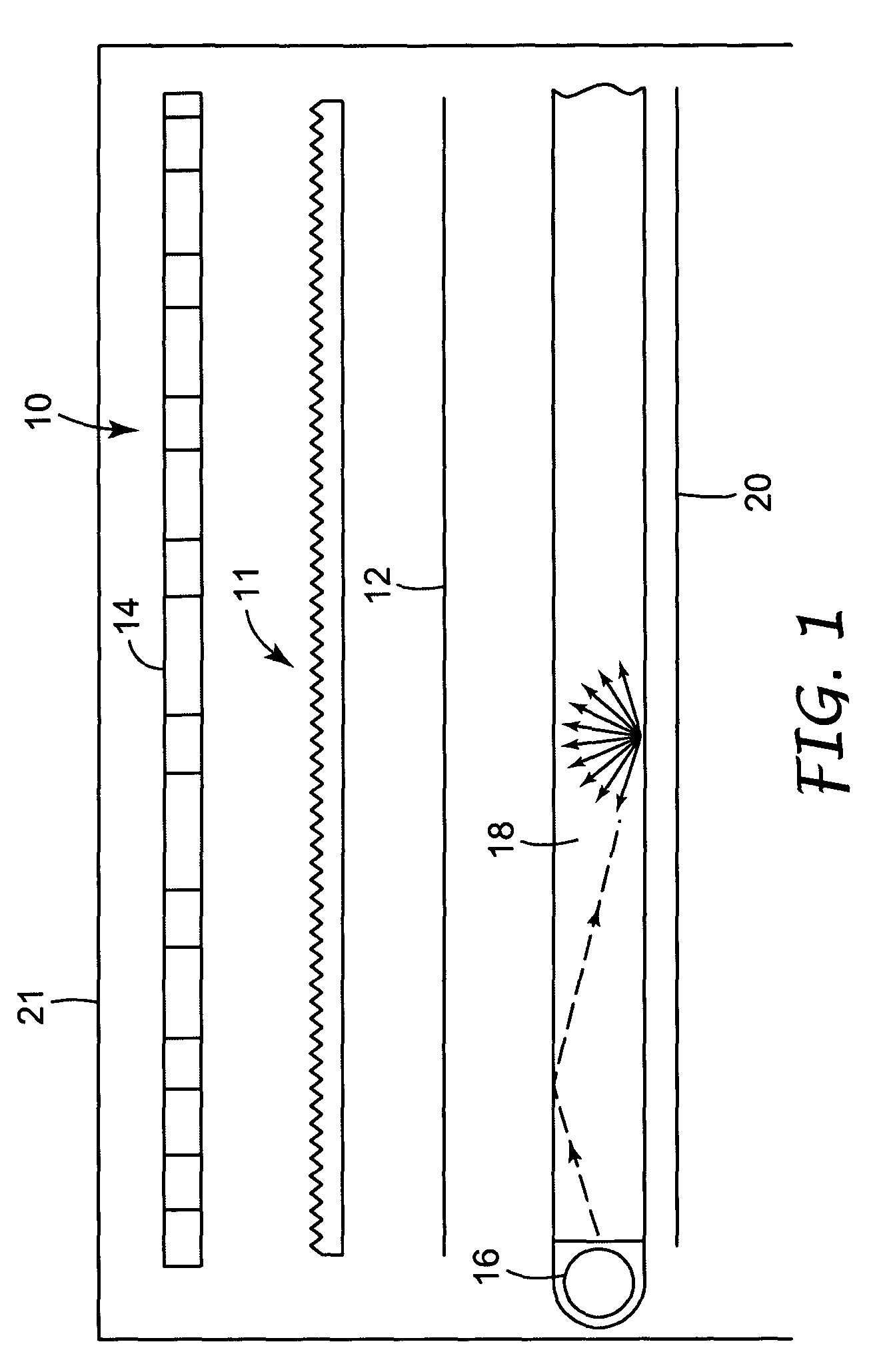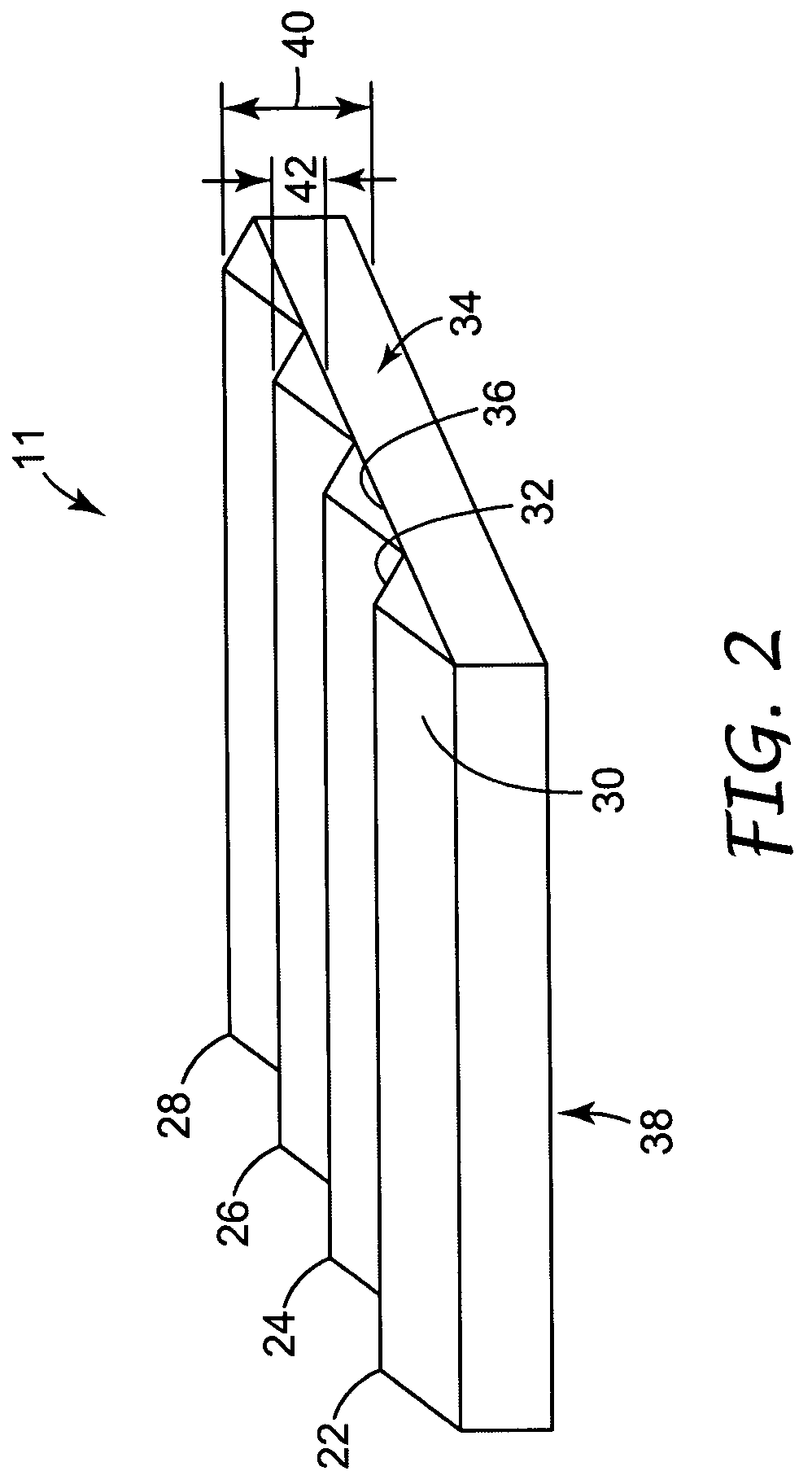Durable optical element
a technology of optical elements and microstructures, applied in the field of durable articles, can solve the problems of scratches that look substantially brighter than the surrounding area, the tip of the microstructure is susceptible to mechanical damage, and the area of film remains undamaged
- Summary
- Abstract
- Description
- Claims
- Application Information
AI Technical Summary
Benefits of technology
Problems solved by technology
Method used
Image
Examples
example 1a
Silane-Modified Silica Nanoparticle Dispersion
[0121]Preparation of silane-modified silica nanoparticle dispersion: Nalco 2327 (400.01 g) was charged to a 1 liter (32 oz) jar. 1-Methoxy-2-propanol (450.05 g), Silane A174 (19.02 g), PEG2TES (9.45 g), and 2% Prostab 5128 in H2O (0.5 g) were mixed together and added to the colloidal dispersion while stirring. The jar was sealed and heated to 80° C. for 16.5 hr resulting in a clear, low viscosity dispersion of surface modified colloidal silica nanoparticles.
example 1b
Silane-Modified Silica Resin Dispersion
[0122]Preparation of silane-modified silica nanoparticle resin dispersion: Into a 1 liter round-bottom flask, 876.4 g of this modified silica dispersion (from Example 1A) was charged followed by 245.83 g Optical Resin C, and 4.9 g of a 2% solution of Prostab 5128 in water. Water and alcohol were removed by rotary evaporation at 80° C. thereby yielding a clear, low viscosity liquid resin composition containing approximately 38.5% SiO2.
[0123]A total of ten batches were made and combined to yield 3,864.9 g of silane-modified colloidal silica nanoparticle resin. To this was added 38.6 g Darocure 1173. The resultant surface-modified colloidal silica nanoparticle containing resin contained 37.33% SiO2. The refractive index was 1.50.
example 2
Silane-Modified Silica Resin Dispersion
[0124]Nalco 2327(1200.00 g) was charged to a 2 liter Ehrlenmeyer flask. 1-Methoxy-2-propanol (1350.3 g), Silane A174 (57.09 g), and PEG2TES (28.19 g) were mixed together and added to the colloidal dispersion while stirring. The contents of the flask were poured into 3 32 oz sealed jars. The jars were heated at 80° C. for 16 hours. This resulted in a clear, low viscosity dispersion of surface modified colloidal silica nanoparticles.
[0125]A 10 liter round-bottom flask (large neck) was charged with the contents of the three jars (2638 g), 743.00 g Optical Resin C, and 8.0 g Prostab 5128 at 2% in water. Water and alcohol were removed via rotary evaporation. A clear, low viscosity resin dispersion containing surface modified colloidal silica nanoparticles was thus obtained. The resin dispersion contained approximately 38.5% SiO2 and approximately 2% 1-methoxy-2-propanol as measured by gas chromatography.
PUM
| Property | Measurement | Unit |
|---|---|---|
| particle size | aaaaa | aaaaa |
| particle size | aaaaa | aaaaa |
| size | aaaaa | aaaaa |
Abstract
Description
Claims
Application Information
 Login to View More
Login to View More - R&D
- Intellectual Property
- Life Sciences
- Materials
- Tech Scout
- Unparalleled Data Quality
- Higher Quality Content
- 60% Fewer Hallucinations
Browse by: Latest US Patents, China's latest patents, Technical Efficacy Thesaurus, Application Domain, Technology Topic, Popular Technical Reports.
© 2025 PatSnap. All rights reserved.Legal|Privacy policy|Modern Slavery Act Transparency Statement|Sitemap|About US| Contact US: help@patsnap.com



